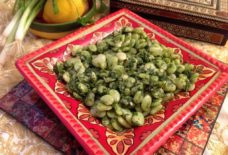‘Water as a Weapon’
Yasmeen Hamdah
Independent Collegian
Could you manage having access to less than a fifth of the water that you use in order to hydrate, bathe, do your laundry and all of your other needs?
On April 24, ‘Water as a Weapon’ will educate the audience in the University of Toledo Driscoll Auditorium at 4 p.m. about the water crisis in occupied Palestine. This water crisis stems from the fact that the Palestinian people are denied their right to over 80 percent of their own water. The lecture is sponsored by the UT Students for Justice in Palestine.
The keynote speaker is Nidal Al-Azraq, a Palestinian-American activist. He was born and raised in Aida Refugee Camp, located in Bethlehem, Palestine. Al-Azraq will be giving a lecture about the hardships that the Palestinian people must go through because of their limited access to water.
Al-Azraq will discuss Area C, which makes up nearly two-thirds of the West Bank in Palestine. Area C is completely controlled by the Israeli government and is the location of many aquifers. Israel has control over 73 percent of the water in the West Bank. Ten percent of the remaining 27 percent that the Palestinians have is under the possession of Israeli settlers. As a result, the Palestinian people only have access to 17 percent of the water available in the area, according to Al-Azraq.
Israel restricts the amount of water Palestinians can have for their needs, because the Israelis want Palestinians to move out of Area C, according to Al-Azraq. Many Palestinian businesses require the use of water and, since they have limited access, these businesses have to move to areas such as Area A and Area B of the West Bank to search for water to use.
Many Palestinians in Area C of the West Bank are involved in agriculture and require water for plant-life and trees. Palestinian families also need water in order to perform simple tasks, such as doing laundry and bathing their children. Sometimes, these tasks are difficult to impossible to perform when the water is not running. Palestinians living in Area C may not even have access to drinking water. When families do not have access to water for their nourishment and hygiene, they are at risk for illness. At times, Palestinians find themselves having to buy water for themselves and their families. When they do this, they are met with raised prices.
“Nothing is more important to human life than water,” said Maysoon Otaibi, a community member involved in the ‘Water as a Weapon’ event. Otaibi said that the limitations that are placed on Palestinians’ access to water are placed so that Palestinians will leave certain areas.
Otaibi said that people may be able to draw comparisons between the Palestinian water issue and the Flint, Michigan water crisis.
Anee Abowd, a community member and peace activist, believes that the ‘Water as a Weapon’ event is an opportunity for attendees who do not know about the situation to learn more and also serves as a reminder for those who know what problems Palestinians are facing.
“This is a crime against humanity,” Abowd said. “It’s only when you know about something that you have to make a moral decision about it.”
The proceeds from the ‘Water as a Weapon’ lecture will be donated to 1for3.org, a non-profit organization that Al-Azraq is involved with. 1for3.org strives to provide the necessary programs for Palestinian refugees in Aida Refugee Camp to assist them with the water situation. It provides aid to Palestinian refugees by funding and organizing projects, such as the construction of playgrounds, gardens, clinics and schools.
Source: independentcollegian.com


